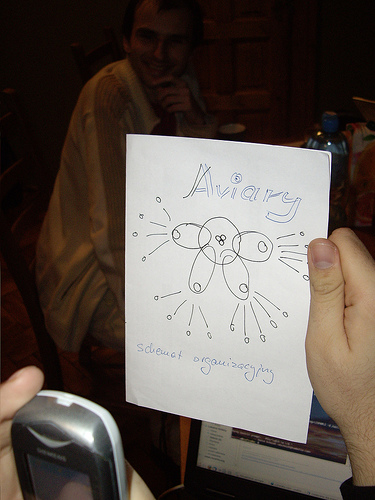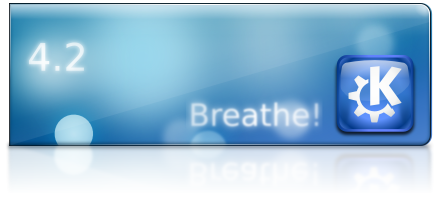W ostatnim czasie nabrała tempa dyskusja na temat IE i Windows. Przyczyną było wystosowanie przez Komisję Europejską wstępnego Stanowiska Obiekcji (Statement of Objection).
Poniższy post ma na celu sprostowanie pewnych nieścisłości które pojawiły się w polskiej blogosferze w związku z tym wydarzeniem.
1) Gracze
Komisja nie “oskarżyła” Microsoftu, a jedynie wysłała do firmy Microsoft list w którym opisała swoje wstępne stanowisko. To jeszcze bardzo daleko do postawienia zarzutów.
Teza Komisji brzmi: “Złączenie przez Microsoft Internet Explorera z systemem operacyjnym Windows szkodzi konkurencji między przeglądarkami internetowymi, osłabia innowacyjność produktu oraz redukuje wybór użytkownika”. (“Microsoft’s tying of Internet Explorer to the Windows operating system harms competition between web browsers, undermines product innovation and ultimately reduces consumer choice.”). Wybaczcie tak surowe tłumaczenie, chodzi mi tylko o podstawowe brzmienie wypowiedzi.
Jak wiecie pewnie, kilka organizacji zdecydowało się poprzeć stanowisko Komisji – takie firmy jak Google i Opera (która zgłosiła temat do KE w zeszłym roku) oraz Mozilla Foundation. Oznacza to, że trzej producenci przeglądarek internetowych konkurencyjnych wobec Microsoft Internet Explorera, trzy firmy żywotnie zainteresowane rynkiem internetowym wsparły stanowisko KE w tej kwestii.
Nie oznacza to jednak, że wszyscy zgadzamy się co do natury problemu czy też, że będziemy naciskać na KE z jakimś wspólnym rozwiązaniem. Na dzień dzisiejszy w powyższym zagadnieniu występuje przynajmniej 5 podmiotów – KE, Microsoft, Opera, Google i Mozilla.
Każde z tych pięciu podmiotów reprezentuje swoje stanowisko. Nie ma stanowiska wspólnego i obawiam się, że jeszcze troche potrwa zanim (jeśli) wypracujemy je. Trudno mi wypowiadać się w imieniu któregokolwiek z podmiotów, mogę jedynie opisać jak wygląda dyskusja wewnątrz samego projektu Mozilla, choć i to co dzieje się wewnątrz projektu jest niejednorodne.
2) Jest źle
Zacznijmy od tezy stawianej przez Komisję.
“Złączenie przez Microsoft Internet Explorera z systemem operacyjnym Windows szkodzi konkurencji między przeglądarkami internetowymi, osłabia innowacyjność produktu oraz redukuje wybór użytkownika”
Wszystko co wydażyło się do tej pory, to to, że Opera, Google i Mozilla zgodziły się z powyższą tezą. Nic więcej. To bardzo, bardzo ważne, dla zrozumienia aktualnej sytuacji. Trzech graczy zgadza się, że złączenie IE oraz Windows szkodzi rynkowi.
Dowód empiryczny jest taki, że w efekcie tego złączenia nie istnieje dziś rynek przeglądarek, który moglibyśmy nazwać zdrowym. Istnieje jedna przeglądarka, która ze wszech miar powinna utrzymywać około 90-95% rynku światowego. Powodem dla którego tak nie jest, jest to, że jej producent przez 6 lat zignorował wydawanie nowych wersji, a nowe wydania rażą katastrofalną wydajnością, stabilnością i wygodą użytkownika. Jednocześnie pojawił się otwarty projekt, który stworzył przeglądarkę i dzięki pracy setek tysięcy wolontariuszy wypromował ją do takiego momentu, że zdobyła 20% rynku światowego.
Wiele udało się dzięki temu odblokować. Jest jasne, że dzięki temu, że Firefox ma 20% łatwiej jest innym graczom – Chrome, Safari czy Opera mogą względnie łatwo oferować wysokie UX ponieważ serwisy internetowe nie mogą być już “IE only”. Oczywiście niektóre stają się “IE&Firefox only” ale to raczej dotyczy tych, które wcześniej były “IE only” więc nie pogarsza to sytuacji pozostałych. Natomiast wiele innych staje się zgodna ze standardami i otwarta. Ba! Stworzenie dziś przeglądarki jest po prostu łatwe dzięki Mozilli. Bierzesz Gecko czy Firefoksa i tworzysz K-Meleona, Galeona, Epiphany, Flocka, Seamonkey… możesz wziąść też WebKit (czy istniałby gdyby nie Gecko? Czy byłby otwarty?) – jest łatwo.
Jednak nie oznacza to, że rynek jest dziś normalny. Co by się stało gdyby Mozilla wycofała się z rynku przeglądarek i skupiła na, np. edukacji czy komunikacji? Co by się stało gdyby Microsoft wypuścił nie wspaniałą, ale “normalną” przeglądarkę nie odstającą 5 lat za innymi w standardach, prędkości itp?
Twierdzę, że w ciągu 2-3 lat IE znów osiągnęłoby 90-95% rynku. I osiągnełoby go nawet będąc “przeciętnym” produktem. Czy to jest normalny rynek? Czy normalna, zdrowa konkurencja polega na tym, że jeden gracz ma 95% choć nie posiada żadnych atutów czy przewag nad, np. Operą?
Powtórze więc, obecne złudzenie, jakoby rynek przeglądarek był “normalny” wynika z reakcyjnych wysiłków ogromnej społeczności oraz niskiej jakości produktu dominującego. I usunięcie jednego z tych czynników ustawicznie “normalizujących” rynek przywróciłoby absolutnie nienaturalny i niebezpieczny stan. Stan, w którym “oknem na świat” kieruje i które kontroluje jedna firma, której interesem jest zysk akcjonariuszy.
Mozilla jest projektem organicznym. Istniejemy tak długo jak długo mamy sens istnienia i udaje nam się zorganizować wewnętrznie. Chcemy istnieć i mieć wpływ na Internet za 50 lat, wierzymy, że będziemy za te 50 lat potrzebni, ale nie wiemy czy akurat w przeglądarkach. Nie wiemy jak za 50 lat będzie wyglądał świat, nie wiemy jak będziemy realizowali naszą misję, ale uważamy, że mamy obowiązek pracować nad tym, aby Internet był zdrowy. Rynek przeglądarek nie jest i diagnoza KE jest naszym zdaniem absolutnie słuszna.
Rynek przeglądarek jest niezdrowy i złączenie IE z Windows jest jedną z najważniejszych przyczyn tego stanu”.
3) Nie znamy rozwiązania
Teraz, zupełnie czym innym jest określenie problemu, a czym innym jest znalezienie rozwiązania. Ludzie lubią tworzyć skróty, dziennikarze lubią chwytne tytuły. Niestety świat nie jest prosty, a operowanie na rynku, który staje się coraz ważniejszym środkiem edukacji, komunikacji i prowadzenia biznesu jest niezwykle złożonym tematem w którym nie istnieją łatwe rozwiązania.
W tym konkretnym przypadku trudno nawet o stanowisko “Mozilli” gdyż jako projekt jesteśmy wewnętrznie różnorodni i niejednomyślni. Spróbuje więc opisać kilka z zagadnień, które wyłaniają się z dyskusji na ten temat.
a) Primum non nocere
Absolutnie nie zgadzamy się z “prostymi rozwiązaniami” typu – “usunąć IE z Windows” czy “zmusić Microsoft, by dołączył kilka przeglądarek i dał wybór podczas instalacji”. To byłoby chore. Jesteśmy przekonani, że usuwanie przeglądarki z systemu operacyjnego byłoby kaleczeniem doświadczenia korzystania z komputera przez użytkowników i jako takie byłoby ruchem wymierzonym przeciwko użytkownikom.
Mamy też bardzo poważne wątpliwości co do implikacji włączania przez Microsoft jakichkolwiek produktów poza własnymi. Wiązałoby to cykle wydawnicze, tworzyło precedensy w zakresie bezpieczeństwa, praw patentowych, szkodziłoby wreszcie samemu użytkownikowi zmuszając go do kolejnego wyboru.
b) Rząd nie powinien ingerować w technologie i wybory technologiczne prywatnej firmy
Nawet jeśli techniczne możliwe jest, aby KE zmusiła Microsoft do jakiegkolwiek ruchu w zakresie oferty systemowej (jak zrobiła to z odtwarzaczem muzycznym), to byłby to ruch niebezpieczny i ryzykowny. Po pierwsze sam zamysł, jakoby rząd mógł jakąś odgórną dyrektywą dotyczącą wyborów technologicznych uzdrowić konkurencyjność rynku jest bardzo wątpliwy, po drugie zaś tworzy niesamowite pole do nadużyć z obydwu stron. Nie wierzę, aby Microsoft wykonał ruch zgodny z literą decyzji KE w sposób, który będzie wspierał konkurencyjność rynku. Jeśli Microsoft nie będzie partnerem w tej dyskusji to raczej spodziewam się “ogrywania systemu”, sztuczek i obchodzenia decyzji.
c) Czy Mozilla powinna być stroną?
Zażalenie złożyła Opera, podjęła je KE i wystosowała list do Microsoftu. Na ile racjonalne jest włączanie się Mozilli w to? Wierzę, że jest. Mozilla stawia sobie za cel realizację wizji otwartego i konkurencyjnego Internetu jako miejsca do pracy, nauki, zabawy i rozwoju. Nie możemy stać z boku i biernie czekać na decyzje Komisji. Na dodatek, mamy prawo uznawać się za jednych z większych ekspertów w dziedzinie przeglądarek i rynku przeglądarek. Problemem wewnętrznym jest jak zapewnić, że cała społeczność Mozilli ma wpływ na nasze stanowisko. Czy każdy kto ma opinię na ten temat bloguje o tym? Czy każdy komentuje posty Mitchell, Tristana, Marka? Czy każdy bierze udział w spotkaniach Mozilli Foundation gdzie dyskutuje się ten temat?
d) Czy jest już za późno?
Czy ma sens budowanie jakichkolwiek rozwiązań, gdy rynek jest od co najmniej 10 lat skażony taką sytuacją i sam, powolnie i nieudolnie próbuje reagować?
e) Czy firma traci jakieś wolności lub prawa stając się monopolistą?
W nawiązaniu do punktu b), pojawia się pytanie czy Microsoft mający swój system (jak Apple, Red Hat, Canonical itp.) staje się kimś innym tylko dlatego, że jest monopolistą na rynku przeglądarek? Czy powinien musieć zachowywać się inaczej? Czy powinien musieć stosować się do standardów (i czy standardy wówczas nie stają się przedmiotem gier politycznych – patrz ISO i OOXML), czy powinien odpowiadać za rynek którego jest monoopolistą jeśli nie widzi w tym celu biznesowego?
Czy można mówić o “nieodpowiedzialnym liderze”, który nie umie lub nie chce przyjąć na siebie pewnego kontraktu społecznego związanego z dominacją na takim rynku i czy brak tej woli powinien wiązać się z penalizacją? Czy zachowanie Microsoftu w związku z przeglądarkami w latach 2001-2007 powinno być nielegalne? Czy w ten sposób myśląc nie tworzymy paradoksu monopolu w którym dominacja na rynku wiąże się z obowiązkami szkodzenia własnej pozycji?
f) Czy istnieje rozwiązanie?
Czy warto zmuszać Microsoft do stosowania standardów poprzez prawo a nie rynek? Czy to zadziała? Co się stanie gdy w prawie będzie wymóg stosowania CSS2 a wyjdzie CSS3? Co jeśli wyjdzie XHTML2.0 oraz HTML5? Kto decyduje? Co jeśli pojawią sie niezgodności między decyzjami KE a na przykład rządami azjatyckimi?
Czy można zażądać od Microsoftu, aby nie wiązał możliwości korzystania z Windows z IE (np. aby można było aktualizować system bez użycia IE, albo zakazać mieszania użycia IE w celach związanych z systemem operacyjnym z celami przeglądania sieci)
Czy można zażądać od Microsftu, aby zagwarantował, że w przypadku korzystania z innej przeglądarki, wygoda i funkcjonalność systemu nie będą ograniczone?
Czy można zabronić Microsoftowi ukrywania elementów API wyłącznie dla swojej przeglądarki?
Czy ma sens zobowiązanie Microsoftu, aby prezentował inne przeglądarki podczas instalacji systemu lub aktualizacji wersji przeglądarki domyślnej?
Czy IE powinno oferować zostanie zastąpienie domyślnej przeglądarki jeśli został zainstalowany z systemem?
Czy Microsoft powinien być zobowiązany do zapewnienia neutralności technologicznej swoich narzędzi deweloperskich (tak, aby wynikowe programy działały w innych przeglądarkach?)
Czy można zobowiązać Microsoft do edukacji użytkowników o innych przeglądarkach i ewentualne kary za nierealizacje przeznaczyć na promocję wolnych standardów i edukację użytkowników?
4) Podsumowanie
Microsoft ma wszystkie atuty, by w krótkim czasie odzyskać swój monopol. Może to zrobić na setki sposóbów i jedną z najważniejszych przyczyn dla których to się nie stało teraz jest brak motywacji, a nie brak możliwości. Rynek w takiej sytuacji jest w nieustającym napięciu i nie ma dziś najmniejszych szans, aby 3-5 dużych graczy dzieliło się równo rynkiem i mogło zdrowo konkurować w długiej perspektywie.
Poruszony przez KE temat wywołuje dyskusje, dyskusja ta tworzy nowe pomysły na rozwiążania, ale jesteśmy bardzo daleko od konsensusu i jedno co wiemy to to, że musimy być niezwykle ostrożni, aby nie zepsuć bardziej.
Nie wiemy czy którekolwiek z tych działań mają sens. Nie wiemy jak mogą pomóc, a jak zaszkodzić. Wielu z nas ma obawy przed długofalowymi destrukcyjnymi konsekwencjami krótkowzrocznych działań i zastanawiamy się, czy KE w ogóle ma możliwość zrobienia czegoś co nie zaszkodzi rynkowi. Zgadzamy się, że problem istnieje. Zgadzamy się, że powinniśmy znaleźć rozwiązanie. Jakie? Czy istnieje?
Jeśli ten temat jest dla Ciebie ważny, przyłącz się do dyskusji, w komentarzach tutaj, na blogu Mitchell, albo swoim!
 In for hours (approximately) I should be in Cracow together with 14 other members of Aviary.pl team celebrating next successful year for the team and historical moment for one of the projects we localize – Mozilla Firefox became a market leader according to Gemius (and today has ~46.6% of market share).
In for hours (approximately) I should be in Cracow together with 14 other members of Aviary.pl team celebrating next successful year for the team and historical moment for one of the projects we localize – Mozilla Firefox became a market leader according to Gemius (and today has ~46.6% of market share).




